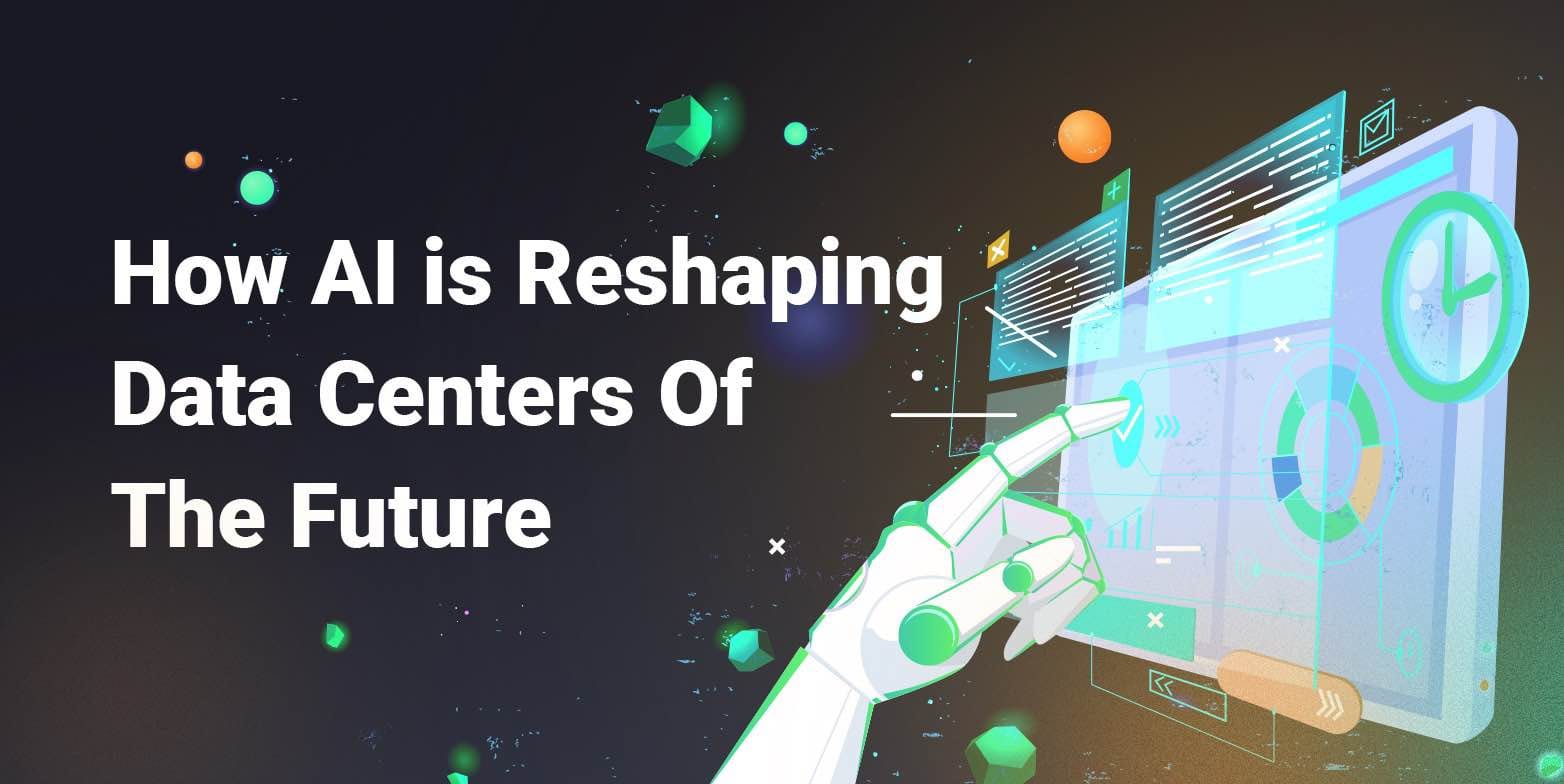How AI is Reshaping Data Centers Of The Future

Data centers manage massive amounts of data and power modern businesses in an era where data is being created exponentially. Due to AI's revolutionary potential, data centers are changing rapidly. Explore how AI is leading to more efficient, resilient, and intelligent management of data centers, and how it might affect cryptocurrency. Read more here.
The Impact of AI on Data Centers
Data centers are undergoing a fundamental transition as a result of the widespread and far-reaching effects of AI. According to a recent survey, a significant majority of global executives, approximately 98%, concur that the integration of AI foundation models will have considerable significance in shaping their organization's strategies during the upcoming 3 to 5 years.
AI is currently positioned at the vanguard of a transformative movement that places significant emphasis on enhancing energy efficiency, optimizing cost-effectiveness, and ensuring reliability. An exemplary illustration of the impact of AI is its contribution to the real-time optimization of data center temperatures. As an illustration, Google's AI installation in the year 2016 resulted in a notable reduction of 40 percent in their data center's cooling expenses.
In order to enhance operational efficiency, AI is being employed to integrate mechanical and electrical systems within data centers. This synthesis streamlines management operations, resulting in cost reduction and enhancing dependability. Through the effective management of power distribution, cooling systems, and workload scheduling, AI facilitates a substantial decrease in energy consumption and operational expenditures.
AI is an immensely potent instrument that is augmenting the cognitive faculties involved in decision-making processes, fortifying the safeguards implemented, and ameliorating the overall efficacy of pivotal data management centers. The role of AI in shaping the future of data centers is poised to become increasingly pivotal as their expansion persists.
Advantages of AI
Higher Densities, More Efficient Cooling
One of the most salient and conspicuous ramifications of AI in data centers is the profound enhancement of optimization. Utilizing AI, data centers can effectively enhance their density levels while maintaining optimal performance standards. This phenomenon entails the ability to accommodate greater computational capacity within a given physical volume, thereby leading to cost reduction and enhancing overall operational efficacy.
Nevertheless, the issue that arises immediately after implementing a high-density machine layout is the rising temperature within the data center, which poses challenges in heat dissipation. Fortunately, the AI-driven cooling system effectively addresses this problem.
One of the most immediate and visible impacts of AI in data centers is the optimization of cooling systems. AI algorithms can analyze data center temperatures in real-time, making adjustments to cooling operations for more efficient and targeted cooling. This not only ensures that equipment runs at optimal temperatures but also leads to significant energy savings.
Capacity Management
The fact that AI is remarkably skilled at data analysis and predictive modeling is very important for managing capacity. As a result, data center managers may better prepare for anticipated workload demands and deploy resources effectively. Because of this, operational expenses go down and reduce the possibility of overprovisioning or underutilization.
Now the data center is more flexible and quick to adapt to changing needs, as it can easily add or remove resources. AI-driven capacity management is a game-changer, delivering a cost-effective and sustainable answer to the issues of data center operations.
Integrated Mechanical and Electrical
In the past, data centers had their own independent mechanical and electrical infrastructures. But now, AI streamlines design through sophisticated algorithms that refine mechanical systems for peak efficiency and cost savings. AI-driven data centers elevate automation, sharpen precision, minimize errors, and boost data processing speed.
Equally transformative is AI's role in maintenance and analytics. By monitoring equipment in real-time, AI aids engineers in detecting issues early and forecasting maintenance, averting expensive failures and minimizing operational pauses.
Disadvantages of AI
Artificial intelligence is changing data centers, but it's important to be aware of the problems that might arise when it's used.
More Power Consuming?
Broader industry research, like that from Tirias Research, forecasts a substantial increase in data center power consumption due to AI, expecting a 212X increase by 2028 compared to 2023. This is attributed to the growing computational demands of AI models, which require substantial energy for power and cooling.
This trend suggests that as AI becomes more integrated into data center operations, companies may see their power consumption rise significantly. Data centers need to strike a balance between the benefits of AI and the additional power requirements, focusing on energy-efficient solutions to mitigate this issue.
Flawed Decision Making?
AI systems are only as good as the data they're trained on. If this data contains biases or errors, AI can make flawed decisions. This is particularly concerning in critical applications, such as autonomous vehicles or healthcare. Data center operators must prioritize data quality and invest in robust AI training and validation processes to prevent biased or erroneous outcomes.
Over-Reliance on AI System
Incorporating AI into the core operations of a company's data center management without a balanced approach can present significant business risks. Over-reliance on AI may lead to vulnerabilities in data security, as AI systems can become targets for sophisticated cyber-attacks. These security breaches could not only disrupt operations but also entail substantial financial and reputational damage to the company.
A balanced solution would involve a hybrid approach that leverages the strengths of both AI and human expertise. Implementing layered security protocols, regular audits, and continuous monitoring can mitigate risks.